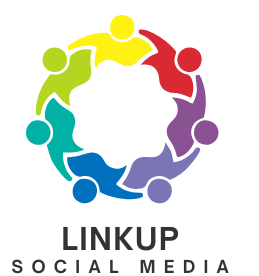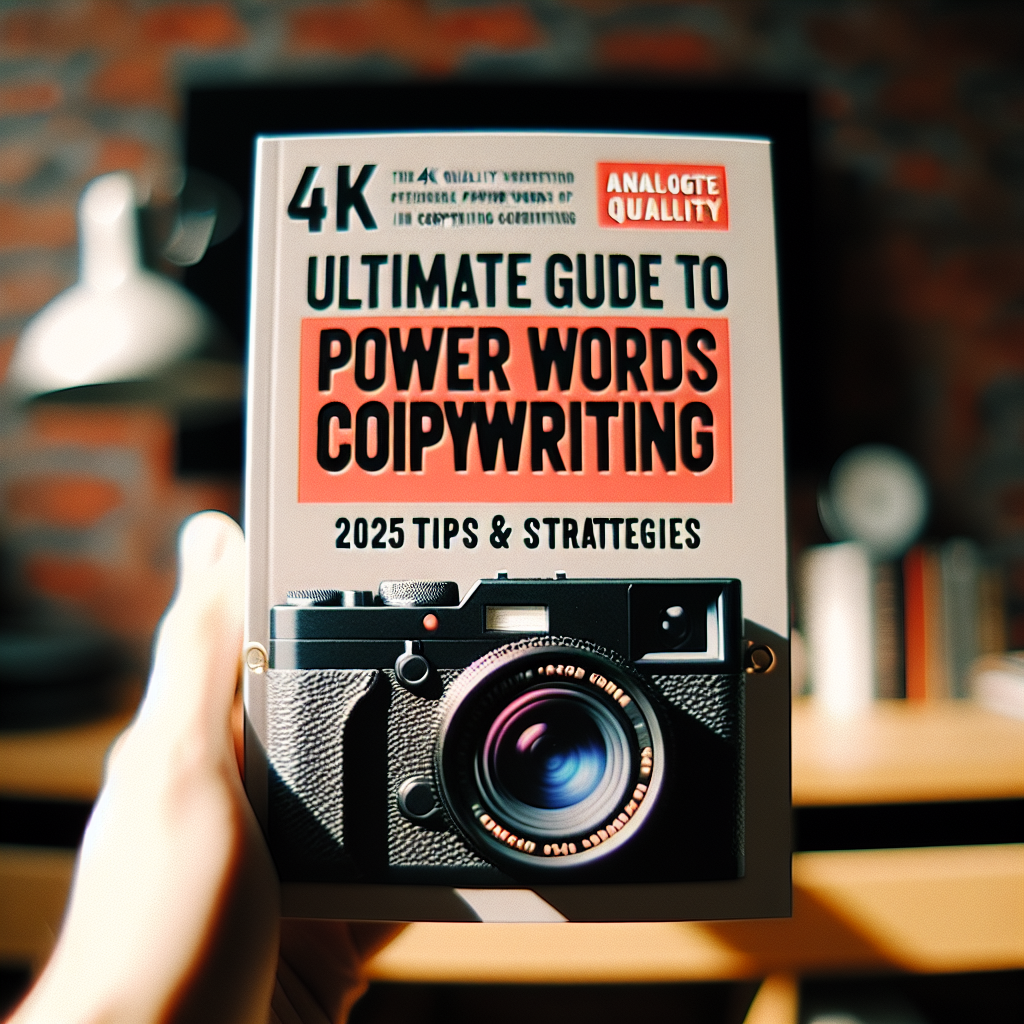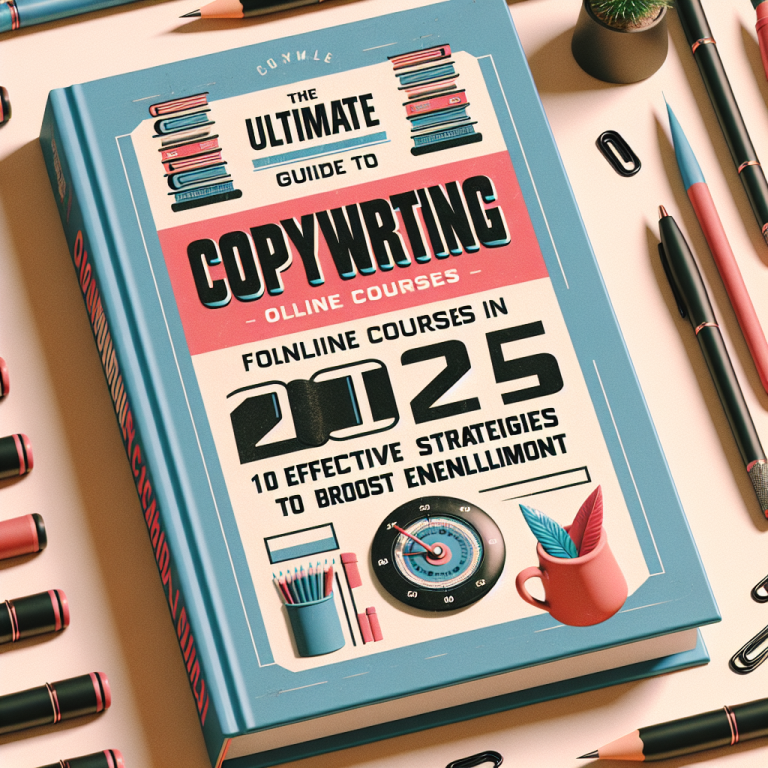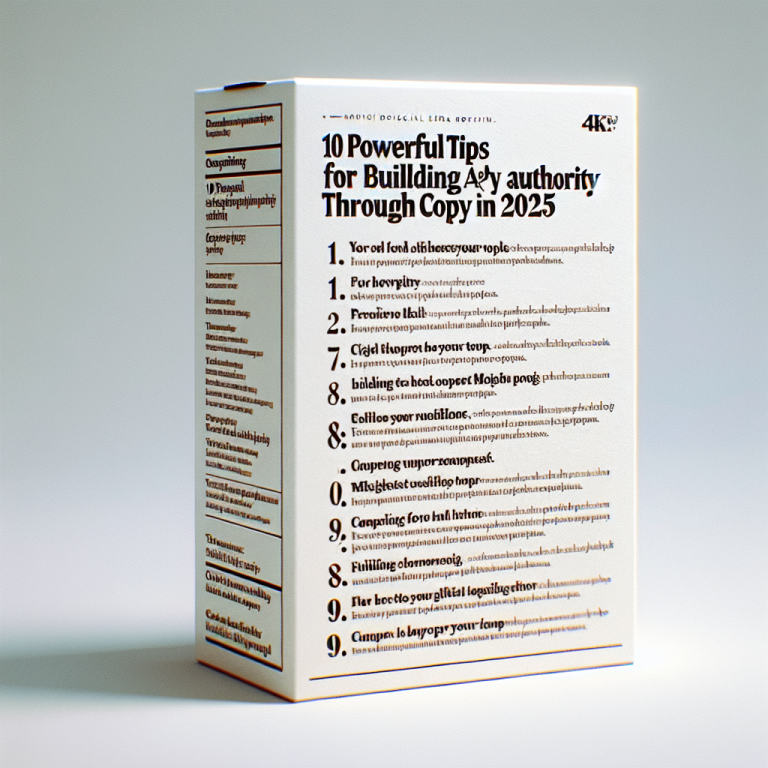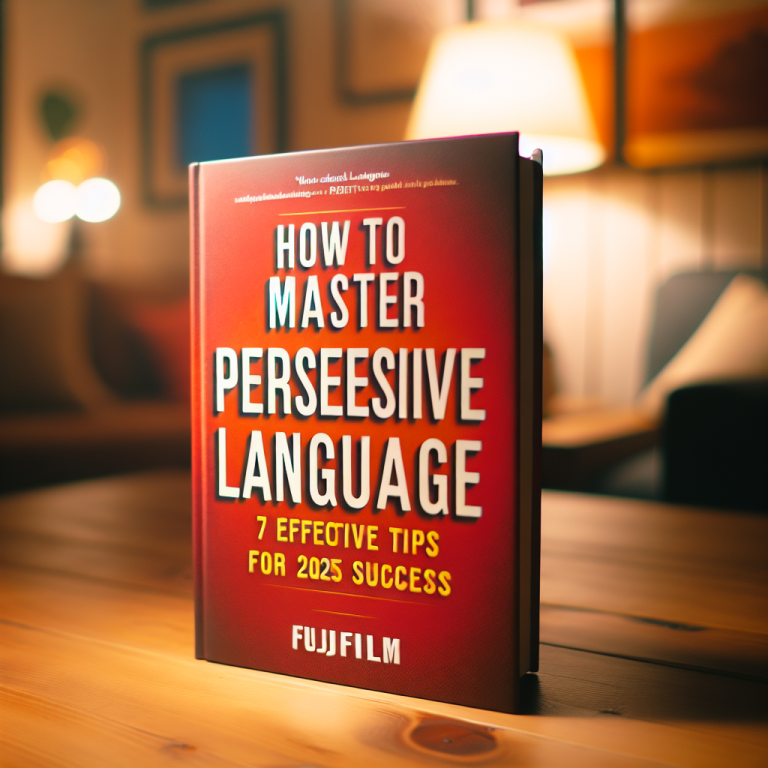The Ultimate Guide to Power Words in Copywriting (2025 Tips & Strategies)
Table of Contents
- Introduction to Power Words in Copywriting
- Why Power Words Matter in 2025
- The Psychology Behind Power Words
- Types of Power Words and When to Use Them
1. Introduction to Power Words in Copywriting
What Are Power Words?
Power words in copywriting are powerful, emotionally charged words that can trigger responses from your audience. They are essential tools for grabbing attention and motivating action. In 2025, mastering these words is more crucial than ever due to the information overload on digital platforms. Using the right words can differentiate your message in a crowded marketplace.
Properly integrated, power words help your content resonate, evoke feelings, and foster engagement. Whether you’re writing a sales page, email, or social media post, these words can dramatically improve your conversion rates. They tap into human psychology, making your communication more persuasive and compelling.
For example, words like “exclusive,” “proven,” or “guaranteed” signal trustworthiness and value. Incorporating such power words into your copy ensures your message cuts through the noise, encouraging your audience to take the desired action now. The strategic use of these words is a hallmark of successful copywriting in 2025.
2. Why Power Words Matter in 2025
Changing Digital Trends and Consumer Behavior
The digital landscape evolves rapidly, and in 2025, consumers are more discerning and skeptical than ever. They are bombarded with countless ads, emails, and content daily. As a result, power words in copywriting serve as a vital tool for capturing attention and distinguishing your brand.
Research from recent marketing studies indicates that content with emotionally charged words has a 20-30% higher engagement rate than bland content. Power words play a pivotal role in triggering emotional responses, which are crucial drivers of decision-making. In essence, they help turn passive readers into active customers.
Smart marketers know that understanding consumer psychology and leveraging power words effectively can lead to increased trust and loyalty. In 2025, those who expertly craft their messages with compelling words hold a significant competitive advantage.
Impact of AI and Data-Driven Copy
Advancements in AI have personalized content creation, but the core of emotionally impactful copy remains rooted in powerful language. Using data-driven insights, marketers now refine their use of power words to match audience preferences more precisely. This synergy results in highly effective messaging strategies that resonate deeply.
Implementing data-backed power word strategies allows for dynamic content that adapts in real-time, maximizing engagement and conversions. Whether through chatbots, email campaigns, or landing pages, the careful selection of power words in copywriting is essential for succeeding in 2025’s digital economy.
3. The Psychology Behind Power Words
Emotional Triggers and Human Behavior
Power words in copywriting tap into fundamental human emotions such as fear, joy, greed, and curiosity. Neuromarketing research shows that emotional responses are often more influential than logical arguments. Words that evoke strong feelings can significantly increase the likelihood of action.
For example, words like “limited,” “urgent,” or “secret” create a sense of scarcity and exclusivity that compels people to act swiftly. Recognizing these psychological triggers allows copywriters to craft messages that strike a chord and influence behavior effectively.
Understanding your audience’s psychological profile enables you to select power words that resonate on a deeper level. Tailoring your language in this way makes your copy more persuasive, impactful, and memorable in 2025.
4. Types of Power Words and When to Use Them
Creating a Power Word Arsenal
There are various categories of power words, each suited for different contexts and goals. For instance, action words like “discover,” “save,” or “boost” motivate immediate responses, while emotional words like “love,” “fear,” or “proud” evoke specific feelings.
Developing a versatile toolkit of power words allows you to adapt your messaging based on the audience and campaign objectives. Use urgency words in limited-time offers, and trust-building words in testimonial sections or case studies. The key is to match the power word with the desired emotional or behavioral outcome.
Additionally, combining power words strategically can amplify their effect. For example, pairing “Exclusive” with “Offer” or “Proven” with “Results” enhances credibility and appeal in 2025’s competitive markets.
5. Practical Tips for Incorporating Power Words in Your Copy
Crafting Compelling Headlines
Headlines are often the first point of contact â and the perfect place to use power words in copywriting. A strong headline with power words grabs attention immediately and entices users to read further. For example, replacing “Our Service” with “Transform Your Life with Our Proven Service” makes a dramatic difference.
Use numbers and power words together to create irresistible headlines, such as “7 Secrets to Boost Your Sales Fast.” This combination promises specific value, motivating readers to click or engage. Remember to test different variants to find what resonates best in 2025’s shifting trends.
In your subheadings and calls-to-action, continue to leverage power words to reinforce urgency and value, ensuring your audience feels compelled to act right now rather than later.
6. Common Mistakes to Avoid with Power Words
Overusing or Misusing Power Words
While power words are powerful, overusing them can lead to skepticism or perceived inauthenticity. Too many emotional triggers in a single piece of content may overwhelm or turn off readers in 2025âs savvy digital environment.
It’s essential to maintain balance and authenticity by choosing power words that truly align with your brand and message. Use them strategically, not excessively. For example, instead of flooding your copy with “unbelievable,” “amazing,” and “exclusive,” select a handful of impactful words that complement your narrative.
Additionally, ensure the power words you select are genuine and relevant; false promises or exaggerated claims can erode trust and harm your brand reputation. Always aim for transparency and honesty.
Conclusion
Mastering the art of power words in copywriting is vital for capturing attention, evoking emotions, and driving conversions in 2025. When thoughtfully integrated, these words transform bland content into compelling messages that resonate with your audience. Remember, the strategic use of power words in copywriting is not just about persuasion â itâs about building trust and inspiring action. By understanding psychological triggers and leveraging the right words at the right moments, you can elevate your marketing efforts to new heights this year and beyond.
Frequently Asked Questions
1. What are power words in copywriting?
Power words in copywriting are emotionally charged words designed to grab attention and persuade readers to take action. They evoke feelings like fear, excitement, trust, or curiosity, making your message more compelling.
2. How can I effectively use power words in my marketing?
Use power words strategically in headlines, calls-to-action, and key sections of your content. Focus on relevance and authenticity to avoid overwhelming your audience. Testing and analyzing results will help calibrate your approach.
3. Why are power words in copywriting important in 2025?
With increasing digital noise and smarter consumers, using power words in copywriting helps your messages stand out, evoke emotions, and boost engagement effectively in 2025âs competitive landscape.
4. How do I avoid overusing power words?
Balance is key. Use power words sparingly and ensure they align with your authentic message. Overloading your copy can lead to skepticism, so prioritize quality over quantity.
